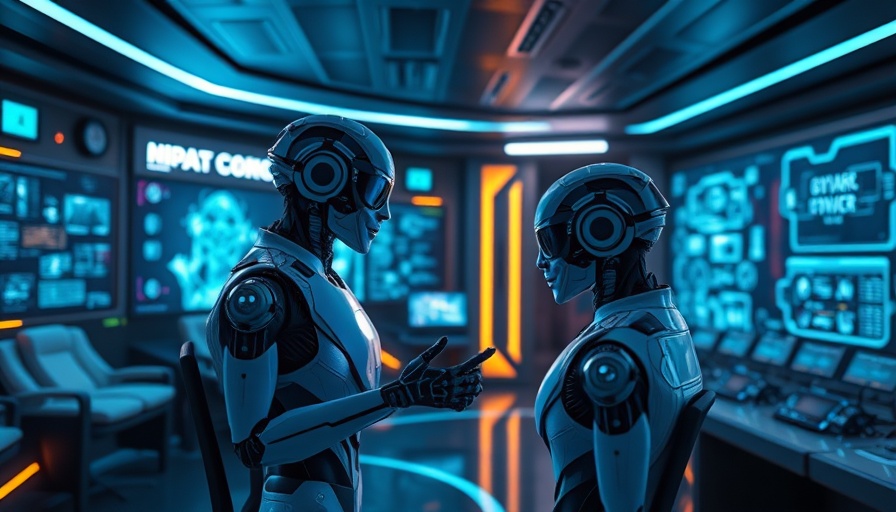
Are Browsers the Future of Agentic AI?
The notion of an agentic AI future is unfolding rapidly, with innovators like Opera and Perplexity leading the charge. As technology evolves towards deeper reasoning and automation, browsers are emerging as potential hubs for these advancements. Opera, a seasoned player in the browser arena, is taking strides toward integrating AI directly into their platform, raising a critical question: could the browser become the operating system of the future?
The Role of Agentic Browsers
Opera's introduction of Opera Neon, which incorporates AI capabilities, signifies a shift towards agent-driven interactions online. While traditional browsing has been decidedly user-driven, where users manually search, select, and purchase, an agentic browser would facilitate transactions automatically based on user preferences. Imagine asking your browser not just to find a product, but to handle the transaction fully by remembering past purchases and exploring alternatives for better pricing. This level of intelligence represents a shift toward a more efficient, user-friendly internet that caters to individual needs.
Why is Perplexity Stocking Up on Browsers?
Perplexity's persistent desire to acquire browser companies, including a notable bid for Google Chrome, makes its intentions clear. They believe that an agentic browser is integral to a broader strategy of fostering AI ecosystems that can manage online activities autonomously. This ambition is fueled by the increasing necessity for systems that can handle complex reasoning and decision-making processes. Moreover, a browser, being a user’s primary gateway to the internet, could play a pivotal role in this transition.
Insights from Opera's Vision on the Future
In discussions with Opera’s product leader, Henrik Lexow, he indicated that the future will revolve around agentic internet experiences, with intelligent agents executing tasks on users' behalf. The leap from a user-driven to an agentic internet could radically alter how we interact with technology and take on the roles of personal digital assistants. The question remains: will these advancements enhance our daily online engagements?
The Implications of an Agentic Internet
The impact of transitioning to an agent-driven internet is substantial. Users can expect not only increased efficiency but also personalization and convenience. It changes how decisions are made; instead of relying on individual searches, a sophisticated browser will use deep reasoning capabilities to determine the best options for the user. This reliance could lead to concerns about privacy and autonomy—questions that will need addressing as technology evolves.
Transformative Power of AI Agents
As AI agents become more prevalent, understanding their functionality and implications becomes crucial. Technologies like Opera’s ARIA enhance user interactions through contextual chat interfaces, bridging the gap between information retrieval and usability. The potential of deep reasoning AI opens new frontiers in how we approach digital tasks.
Future Predictions: The Rise of AI Agents in Browsing
By looking ahead, we can anticipate that the integration of AI agents will not just improve efficiency but will reshape entire industries. As factors such as user data, privacy concerns, and economic models evolve, it will become increasingly essential for companies to navigate this landscape responsibly. Festivals like the upcoming Tech Innovations Conference aim to address these topics, highlighting the balance between innovation and ethical considerations.
In conclusion, as the race for agentic browsing heats up with players like Opera and Perplexity, we stand at the brink of a digital transformation that may redefine how we perceive and interact with the web. Keeping abreast of these changes is not just beneficial but necessary. Explore how these advancements could enrich your online experiences. Join the conversation about the future of AI in browsing today!
 Add Row
Add Row  Add
Add 




Write A Comment